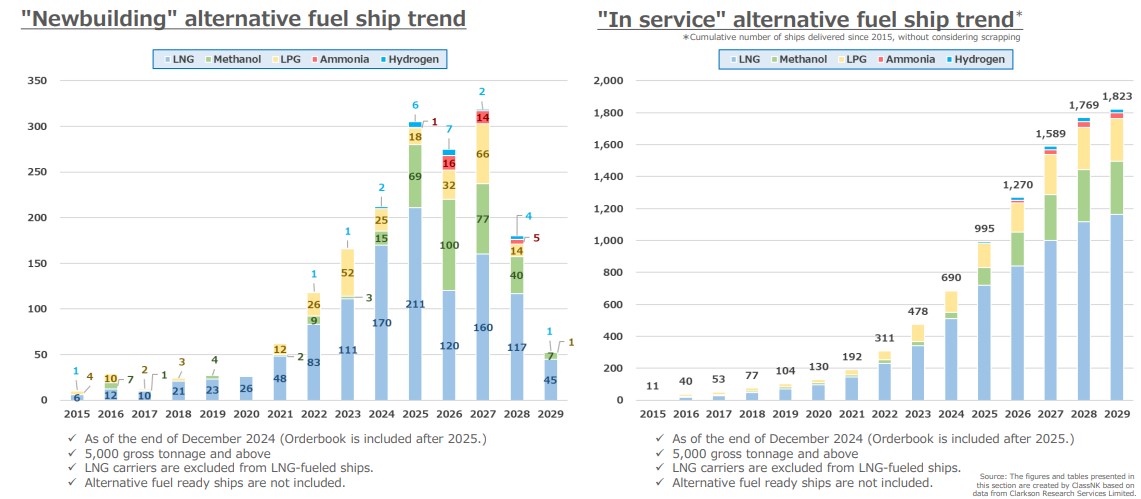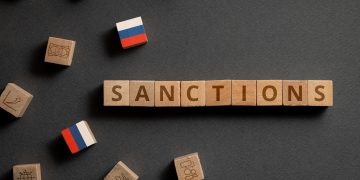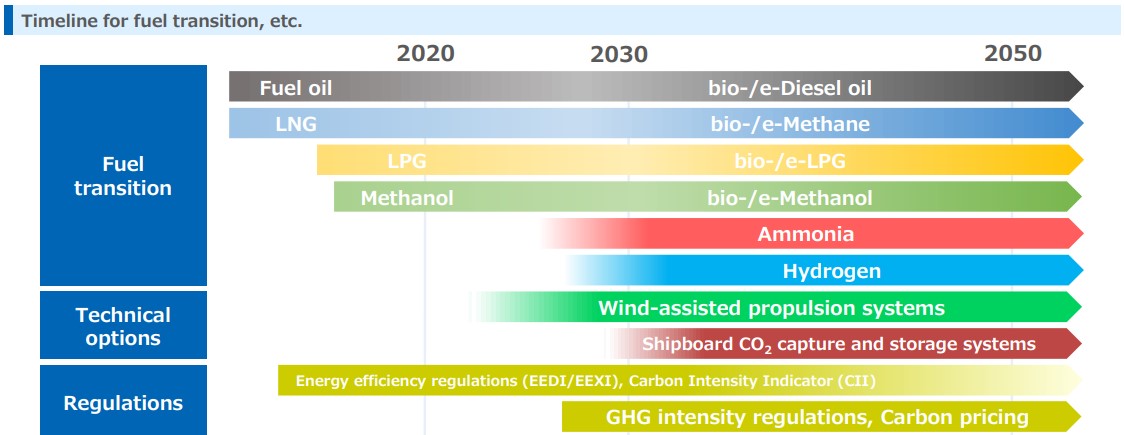ClassNK has released the latest version of its report “ClassNK Alternative Fuels Insight” providing updated information on cost simulations reflecting the IMO’s mid-term GHG reduction measures approved at the 83rd session of the Marine Environment Protection Committee (MEPC 83) held in April 2025.
According to ClassNK, the report outlines the characteristics and latest trends of each alternative fuel, including factors such as fuel availability and cost projections. In the newly released Version 3.0, it features updated cost simulations based on the IMO’s mid-term GHG reduction measures approved at MEPC 83, along with new insights into fuel conversion through simulations aimed at optimizing costs across different fuel types and providing comprehensive total cost comparisons.
Understanding trends
The most popular alternative fuel ships is likely to remain LNG-fueled ships. Although the proportion of LNG-fueled ships in the orderbook decreased from 64% at the end of December 2023 to 57% at the end of June 2024, it maintained a 58% share as of the end of December 2024 (the share of methanol-fueled ships was 25%).
While the adoption rate of alternative fuel ships remains high for ship types such as vehicle carriers, LPG carriers, and containerships, it has not yet significantly progressed for ship types such as bulk carriers, product/chemical tankers, and crude oil tankers.
For ammonia-fueled ships, which are expected to see increased demand in the future, a certain number of adoptions continue to be seen not only in ammonia carriers but also in bulk carriers, and it is important to pay close attention to whether ammonia fuel will become a solution for decarbonization.

Understanding alternative fuels
- Each alternative fuel envisaged for use in international shipping has the potential to become zero-emission or carbon-neutral fuel.
- Due to differences in calorific value, alternative fuels require larger fuel tank capacities compared to conventional fuel oil, potentially resulting in reduced distance covered with the same fuel tank capacity. Therefore, comprehensive fleet-wide consideration, including planned routes, is necessary when adopting alternative fuel ships.
- The GHG emissions of each alternative fuel differ significantly not only during combustion but also throughout their lifecycle. Therefore, it is important to fully understand the scope of GHG emissions targeted by regulations and to weigh the pros and cons of each fuel under regulation.
- The cost of zero-emission or carbon-neutral fuels is generally considered to be lower for biomass-derived fuels than for green hydrogen-derived fuels. However, biomass-derived fuels face supply constraints, requiring careful attention to their availability.
- ClassNK has conducted surveys on the production volumes of biodiesel and zero-emission/carbon-neutral fuels. Considering their demand in international shipping, current production volumes are vastly insufficient, necessitating rapid expansion of production scale.

































































